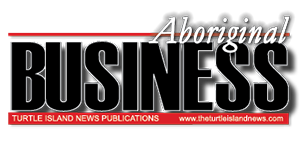By Kelly Geraldine Malone
THE CANADIAN PRESS
WINNIPEG- Canada’s Indigenous-Crown relations minister says a report showing Indigenous people in Manitoba contributed billions of dollars to the economy in one year will help tackle racist stereotypes.
The report, which assessed the impact of the Indigenous economy in the province for the first time, says spending by Indigenous people, businesses and governments totalled $9.3 billion in 2016.
“We know that facts can help bust away stereotypes and can actually start to deal with the racism that we are dealing with in our country coast to coast to coast,” Carolyn Bennett said at the report’s release on Thursday.
“It is about getting the facts out that we actually need for the 95 per cent of Canadians not from an Indigenous background to actually blow up the past, sort of, fake news that is about the role of the Indigenous people and population in our country.”
The more than 240-page report was done in partnership between the Southern Chiefs’ Organization, Manitoba Keewatinowi Okimakanak representing northern chiefs and Brandon University’s Rural Development Institute.
It used 2016 data from Statistics Canada, Indigenous Services Canada, the province’s Indigenous and Northern Relations Department and other sources to inventory spending and calculate impacts. It was partially funded by the provincial and federal governments.
The report says Indigenous spending generated an estimated $230.7 million in revenue for provincial and federal governments. It says the Indigenous economy contributed $2.3 billion, or almost four per cent, to Manitoba’s gross domestic product _ more than manufacturing, accommodation and food services, mining or the oil and gas sector.
MKO Grand Chief Garrison Settee said most Indigenous economic activity has not been acknowledged but now those contributions can be recognized.
“It validates us as a people, as essential contributors to the economy of Manitoba, that can no longer go unrecognized,” he said.
There has always been an Indigenous economy, but the Indian Act has created significant barriers, said Opaskwayak Cree Nation Chief Christian Sinclair.
The report points to former provisions in the act that prohibited everything from use of modern farm machinery to buying and selling goods without a permit. It found current barriers include challenges in acquiring federal approval for projects.
Sinclair said Indigenous people, businesses and organizations will be able to use the report to negotiate.
“We’ve always heard we are big industry, but until today we didn’t know what ‘big’ meant or what that was defined as.”
He said the role of the Indigenous economy will continue to grow because the Aboriginal population is growing so rapidly and more baby boomers are retiring.
A recent report by the Organization for Economic Co-operation and Development said an estimated 350,000 Indigenous youth will turn 15 between 2016 and 2026.
Grand Chief Jerry Daniels of the Southern Chiefs’ Organization said it’s important First Nations don’t base their economy solely on resource extraction. Glancing at Bennett, he said they want Ottawa’s support to foster innovation.
“Just because we have so many resources doesn’t mean we have to just focus on that,” Daniels said.
“We are working on practical tangible solutions and we want to encourage great, genuine relationships, not empty rhetoric.”
 Aboriginal Business Magazine Your source for Aboriginal Business News
Aboriginal Business Magazine Your source for Aboriginal Business News


